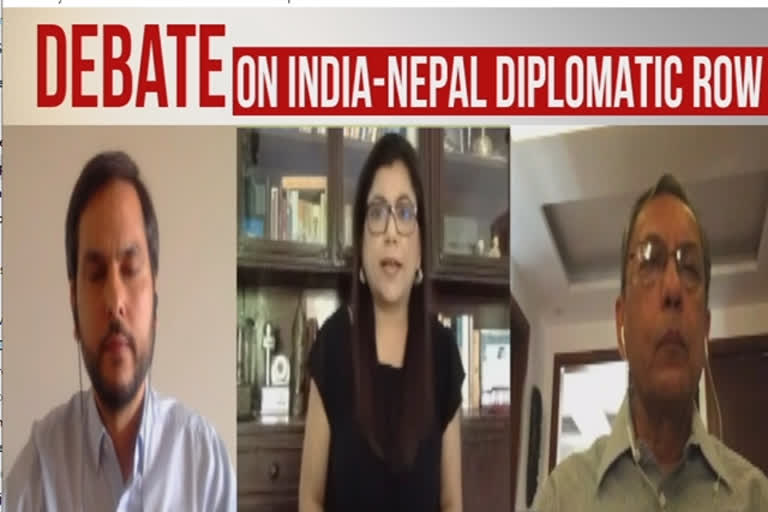New Delhi: In November 2019, following abrogation of article 370 and 35A and bifurcation of Jammu Kashmir Ladakh into two new Union Territories, the Ministry of Home Affairs released a new edition of the Indian political map.
Nepal objected to the map alleging that the disputed ‘Kalapani’ region in the unsettled territory of the Darchula district in the country’s Sudurpashchim province had been wrongly portrayed as part of the Pithoragarh district in the state of Uttarakhand. India maintained that there was no cartographic aggression and the map was ‘accurate’ with nothing that was not published in earlier maps.
Last week as defence minister Rajnath Singh inaugurated a new link road expected shorten the Kailash mansarovar Yatra by several days from Dharchula to Lipu Lekh close to China border, tensions have escalated once again between New Delhi and Kathmandu.
The Foreign Ministry of Nepal in a strongly worded statement called upon India to refrain from carrying out any activity on ‘Nepalese territory’- underlining its claims on all territories east of Mahakali river, “including Limpiyadhura, Kalapani and Lipu Lekh” as per the 1816 Sugauli Treaty.
The Ministry of External Affairs in Delhi however refuted Nepal’s allegations and said that “The recently inaugurated road section in Pithoragarh district in the State of Uttarakhand lies completely within the territory of India.” It further added that there is a delineation mechanism to settle boundary issues and a long overdue meeting would be scheduled between Foreign Secretaries of the two countries once the COVID-19 challenges are dealt with.
This week Nepalese Foreign Minister Pradeep Gyawali informed Parliament that the Himalayan country seeks to increase permanent armed presence on the western border with India and work towards a ‘fixed boundary’.
This has been among the contentious issues reportedly of the Eminent Persons’ Group report which has been lying in the cold bin since its completion with Prime Minister Modi yet to accept a formal submission of the recommendations formulated by the group agreed to bilaterally.
Nepalese Foreign Minister on Monday also reportedly summoned the Indian Ambassador Vinay Kawatra, with Ministry of External Affairs clarifying it was not a summoning but a meeting.
Why has Kathmandu upped its ante? How worrisome is the situation for India given China’s shadow over the erstwhile Kingdom of Nepal? What should New Delhi’s approach be to assuage Nepal and reset bilateral ties? Are Nepal’s allegations of violation of territory justified or is it driven by historical mistrust or domestic political rhetoric?
These are among the issues that Senior Journalist Smita Sharma discussed in this show with retired Indian Ambassador to Kathmandu Ranjit Rae and Brookings India Fellow Constantino Xavier.
Read: India-Nepal diplomatic row escalates over Pithoragarh road
While 98 percent of the boundary disputes between India and Nepal have been settled, the unsettled territories especially the Kalapani sector could now become a permanent irritant between the two neighbours if not addressed, cautions Constantino Xavier.
He underlined that India should prevent any opportunity for a tri-junction flare up in the Kalapani area similar to what was witnessed with Chinese PLA at the Bhutanese tri-junction during the tense 73 day Doklam stand off.
Ambassador Rae expressed concern that China is converting its economic presence in Nepal into a political one and involving itself into ‘shuttle diplomacy’. He advised that India must remain deeply engaged with all political stakeholders in Nepal and issues must be resolved in a calm manner in a conducive atmosphere given the ‘Roti-Beti Sambandh’ or the deep meaningful relations the two neighbours have enjoyed historically.


